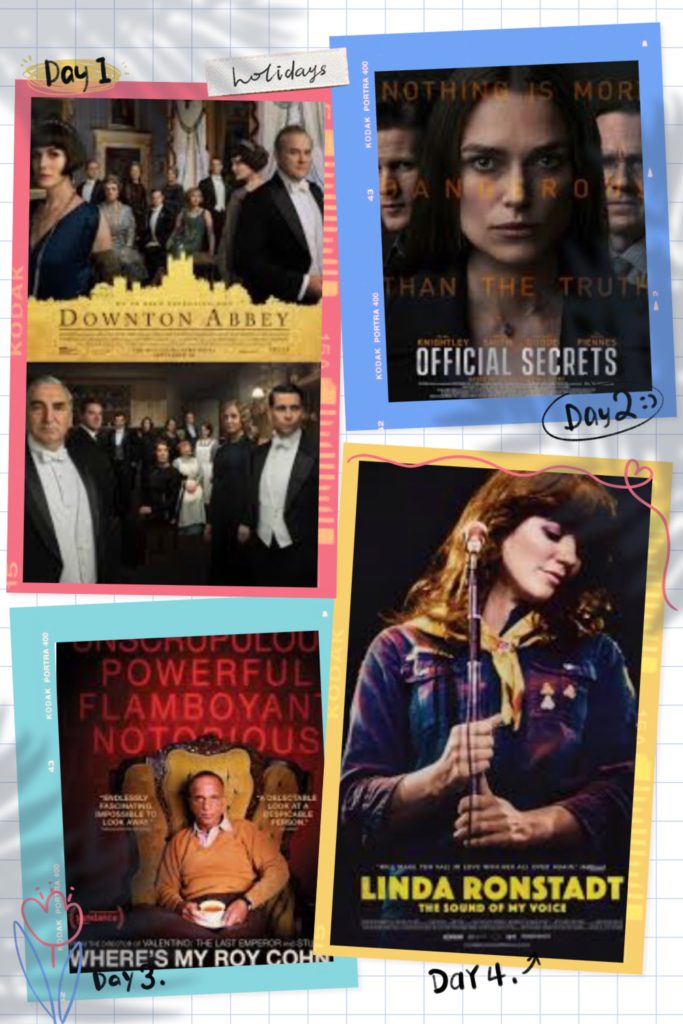In my early days of learning English, I only knew the word “fan” to refer to a person who admires someone or something. Until one day my reading material introduced me to the word “buff”. A native English speaker told me “buff” was a more colloquial and fancier word for the same meaning of “fan”. In China, before the age of smart phones and touch screen devices, watching English movies is one of the few ways to learn spoken English. So I watched a lot of old pictures, ranging from Roman Holiday starring Gregory Peck and my favorite actress Audrey Hepburn, to The Sound of Music whose theme songs were indelible in my mind until today.
My late father remembered how I picked up English words from watching movies—I always carried a small notepad. I jotted down the phonetic sounds of the foreign word, despite my limited knowledge of English spelling at the age of 12. Thanks to the Opening Door Policy, mainland China was like a sponge at the turn of 20th century to accept Western pop culture. Adjacent to Hong Kong, the Pearl River Delta in the mainland’s Guangdong province had the advantage of receiving English TV programs from the former British colony. As a result, I watched these English movies on TV. After a movie was over, I would spend so much time with my dictionary in looking up those strange words in my notepad.
Going to the movie theater was a luxurious recreation for my working-class family. That was twenty years ago before the full introduction of 3D modern theaters nowadays in China. In my coming of age, if I went to movies in a theater, I went with a class to watch the patriotic or educational Chinese films under the supervision of our headmaster. I remember I watched a film about a young girl’s rehab life after a drug trafficking ring crackdown. Boy, no kidding that the educational film has cleansed my young mind so effectively that I have never smoked and detest smokers of all kinds. Until the passing of my father who was a chain smoker, I have gradually come to terms with myself to understand an addict.
My real exposure to Hollywood blockbusters on big screens was in my college years. By then 3D movies had drawn an increase of Chinese moviegoers. According to Wikipedia , China added about 8,035 screens in 2015, increasing its total by about 40% to around 31,627 screens. That was at a pace of 22 new screens per day on average. However, going to movies was still not cheap. The movie houses had been technologically upgraded, so had the ticket prices. I once watched an imported Western movie at 90 yuan (approx. US$12 in today’s currency). That was at least a decade ago. Now the cost is slightly higher. Back then, an average monthly salary for a clerk was about 2,500 yuan. So a ticket to a movie took up nearly 4% of the monthly salary. At that percentage rate, would you spend US$120 for a movie if your monthly salary is US$3,000?
I’m one of the Motion Picture generation. From TV cartoons to big screen movies, I’ve never said no to them. I grew up with them. My fondness for movies has become a necessity after I moved to the US. In my husband’s word, I’m an addict. I now begin to understand why the US diplomat I met in Guangzhou, China, years ago said that she missed the American movies the most when she was far away from home.
I was away from home for a month. During that month I missed movies the most. At home I watched movies on a weekly basis, sometimes double features in one day. I was disappointed that I had already seen the so-called latest movies on my international flights. And in China, imported movies (from the US, Japan, Korea and elsewhere) still need to go through a strict screening process to be shown in theaters. I should have watched more Chinese films while I was in China. But they lacked appeal to my Westernized mind. We hear about Chinese people being westernized, but I seldom hear about American people being sinoized or simply, “Hanized”, as Han Chinese is China’s largest ethnicity.
To quench my thirst for a month-long period of no movies, I went to watch four movies in a week upon my arrival to the States. Downtown Abby, Official Secrets, Where’s My Roy Cohn, Linda Ronstadt—two drama films and two documentaries. Watching movies now becomes my inspiration for writing. Instead of jotting down words I don’t know, I dissect the motion picture in my mind to learn about its storytelling. We are humans, regardless of nationalities and races. We are hungry for a good story; no matter if it is fiction or nonfiction. Cheers to movie makers and tens of thousands of movie buffs like me!!!
Leave a comment here.

